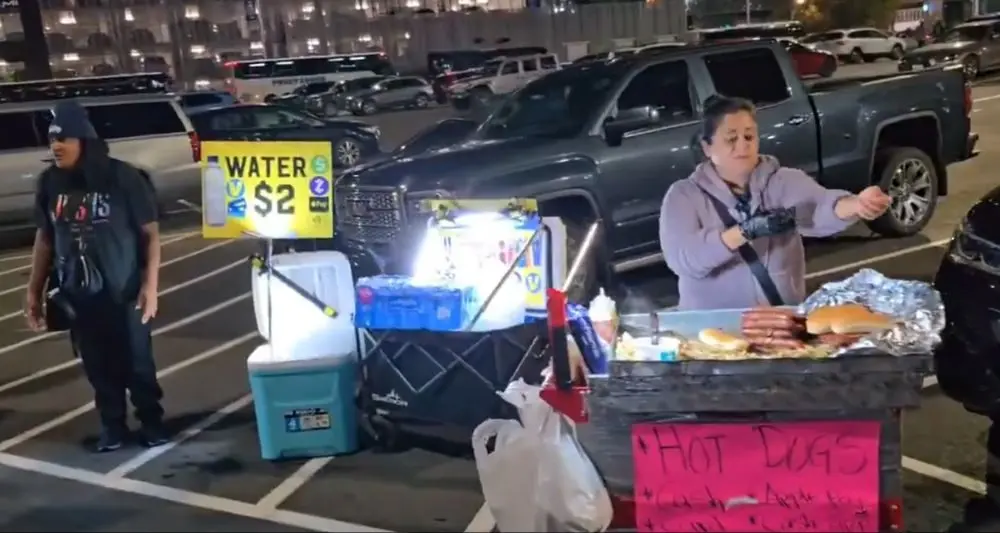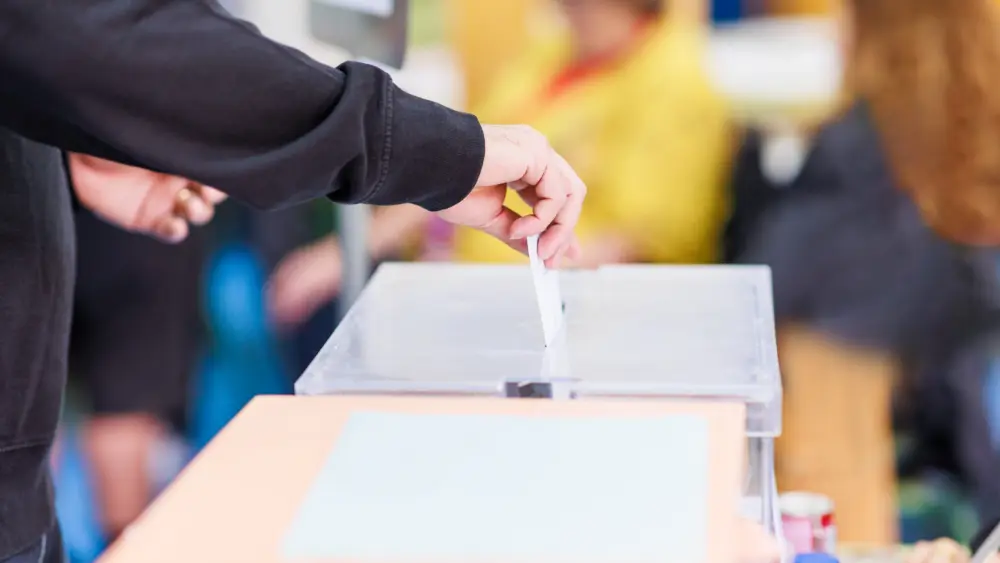
Two weeks ago, Mike and I went to Monday Night Football to watch the Seattle Seahawks. It was one of those great fall nights: a full stadium, pretzels, sodas, and the city still buzzing from the Mariners’ playoff run.
But as we walked toward Lumen Field, we couldn’t help noticing a growing phenomenon: rows of unlicensed street vendors selling hot dogs, tacos, and fruit cups outside the stadium. We made a friendly bet on how many we’d see before the show, Mike guessed seven, I said ten. On the way in, we counted three. On the way out, there were dozens.
Seattle officials claiming they were cracking down on illegal street food vendors worked as well as when they claimed they were cracking down on the homeless
This was outside the stadiums last night pic.twitter.com/yhQL0Pj8sX
— Ari Hoffman 🎗 (@thehoffather) October 21, 2025
At first, it was just a curiosity. But after seeing every local news station cover the “illegal vendor” problem, without ever mentioning the illegal immigration angle, it became clear there was more going on here than meets the eye.
A Loophole the Size of a Food Cart
According to a recent KING 5 investigation, unlicensed food vendors are multiplying outside western Washington’s biggest events, Seahawks games, concerts, and Mariners matchups alike. Despite a decades-old King County ordinance (6.01.140) authorizing $250 fines for selling food without a permit, county officials admit they haven’t issued a single citation.
Seattle's struggles with illegal street vendors are its own fault.
King County has incentivized illegal aliens to sell their wares by eliminating the US citizen competition for them or by taxing licensed businesses so much that they have to charge more@MikeOnKVI & I discuss pic.twitter.com/FOsd7vfFaR
— Ari Hoffman 🎗 (@thehoffather) November 6, 2025
Kate Cole, spokesperson for King County and Seattle Public Health, told KING 5 the issue comes down to logistics:
“We don’t typically have a business owner name associated with the vendors and, by nature of the mobile set-up, lack the property address required for the civil penalty process. It’s really intended for fixed, brick-and-mortar establishments.”
In other words, because these vendors move around and don’t have an address, the law can’t easily be enforced. The result? A loophole big enough to park a taco truck in.
Licensed Vendors Paying the Price
Meanwhile, legitimate business owners are losing patience.
Joshua Trujillo, who operates the licensed Korn Star kettle-corn stand near Lumen Field, told KING 5: “If you’re not going to cite them, yeah, they’ll go home, whatever, they’ll come right back, and they do it every time.”
Sergio Garcia, who owns the 12 Mex Kitchen taco truck, shared a similar frustration.
“All this is my license and everything,” he said, flipping through a thick stack of permits. Garcia estimates he pays more than $50,000 a year in fees, taxes, and insurance to operate legally.
“These guys, meanwhile, pay nothing… It’s frustrating for everybody here, especially for all the vendors right here in the games.”
Garcia says he’s seen up to 75 unlicensed carts outside a single concert. To fight back, he’s crafting his own warning signs about food safety risks, and plans to post a hundred of them along the pathway to the stadium.
Two Sets of Rules
Mike noticed something else that night: enforcement seems uneven. While some vendors, often U.S. citizens, are getting shut down, others continue to sell without consequence. If the county refuses to check IDs or issue fines, how can they possibly claim equal application of the law?
KING COUNTY APPEARS TO BE SELECTIVELY PENALIZING FOOD CART VENDORS
A new investigation revealed that King County isn't fining many of the illegal street vendors in Seattle because of Sanctuary Laws and illegal aliens not having ID
They are targeting the US citizens https://t.co/o1guqJYAQZ pic.twitter.com/0WuzDxvYFZ
— Ari Hoffman 🎗 (@thehoffather) November 6, 2025
If you can’t enforce a basic licensing rule, it undermines everyone who plays by those rules. That’s not just bad governance, it’s potentially unconstitutional. Legal US vendors fined or shut down could have grounds to sue King County for unequal protection under the law.
And there’s another uncomfortable truth: most of the unlicensed vendors being left alone appear to be Hispanic, — possibly illegal aliens — while many of the licensed or penalized vendors are people of color as well. Seattle’s sanctuary policies seem to be shaping enforcement, or lack thereof, whether officials admit it or not.
Public Health and Safety Concerns
Beyond the fairness issue lies a serious public-health question. Who are these vendors? Are they handling food safely? Could they have criminal records? When county officials avoid verifying identity or checking permits, they’re not just ignoring business regulations — they’re gambling with consumer safety.
Even the state now seems to recognize the problem. A Washington Department of Health supervisor told KING 5 that regulators are “evaluating whether updates to the state food code may be needed.” Until that happens, though, unlicensed carts continue to line the sidewalks outside stadiums, cooking food for thousands with little to no oversight.
The Bigger Picture
What started as a lighthearted bet about hot-dog stands has turned into a snapshot of a city struggling to apply its own laws evenly. The KING 5 investigation confirms what many of us have seen firsthand: enforcement is broken, and those trying to do things the right way are the ones paying the price.
Seattle’s selective enforcement isn’t just about food — it’s about fairness. When a government fears being called discriminatory more than it fears being unjust, it stops enforcing the law altogether.
King County did not respond to a request for comment.



